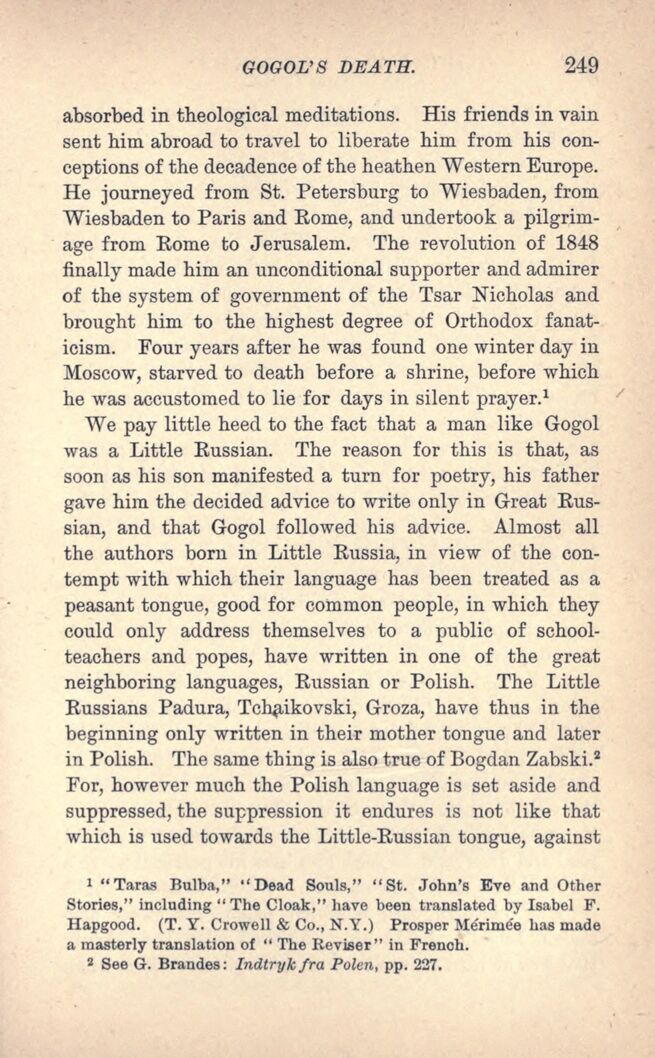
Full resolution (JPEG) - On this page / på denna sida - Impressions of Russian Literature - IV

<< prev. page << föreg. sida << >> nästa sida >> next page >>
Below is the raw OCR text
from the above scanned image.
Do you see an error? Proofread the page now!
Här nedan syns maskintolkade texten från faksimilbilden ovan.
Ser du något fel? Korrekturläs sidan nu!
This page has been proofread at least once.
(diff)
(history)
Denna sida har korrekturlästs minst en gång.
(skillnad)
(historik)
absorbed in theological meditations. His friends in vain
sent him abroad to travel to liberate him from his
conceptions of the decadence of the heathen Western Europe.
He journeyed from St. Petersburg to Wiesbaden, from
Wiesbaden to Paris and Rome, and undertook a pilgrimage
from Rome to Jerusalem. The revolution of 1848
finally made him an unconditional supporter and admirer
of the system of government of the Tsar Nicholas and
brought him to the highest degree of Orthodox
fanaticism. Four years after he was found one winter day in
Moscow, starved to death before a shrine, before which
he was accustomed to lie for days in silent prayer.[1]
We pay little heed to the fact that a man like Gogol
was a Little Russian. The reason for this is that, as
soon as his son manifested a turn for poetry, his father
gave him the decided advice to write only in Great
Russian, and that Gogol followed his advice. Almost all
the authors born in Little Russia, in view of the
contempt with which their language has been treated as a
peasant tongue, good for common people, in which they
could only address themselves to a public of
schoolteachers and popes, have written in one of the great
neighboring languages, Russian or Polish. The Little
Russians Padura, Tchaikovski, Groza, have thus in the
beginning only written in their mother tongue and later
in Polish. The same thing is also true of Bogdan Zabski.[2]
For, however much the Polish language is set aside and
suppressed, the suppression it endures is not like that
which is used towards the Little-Russian tongue, against
<< prev. page << föreg. sida << >> nästa sida >> next page >>